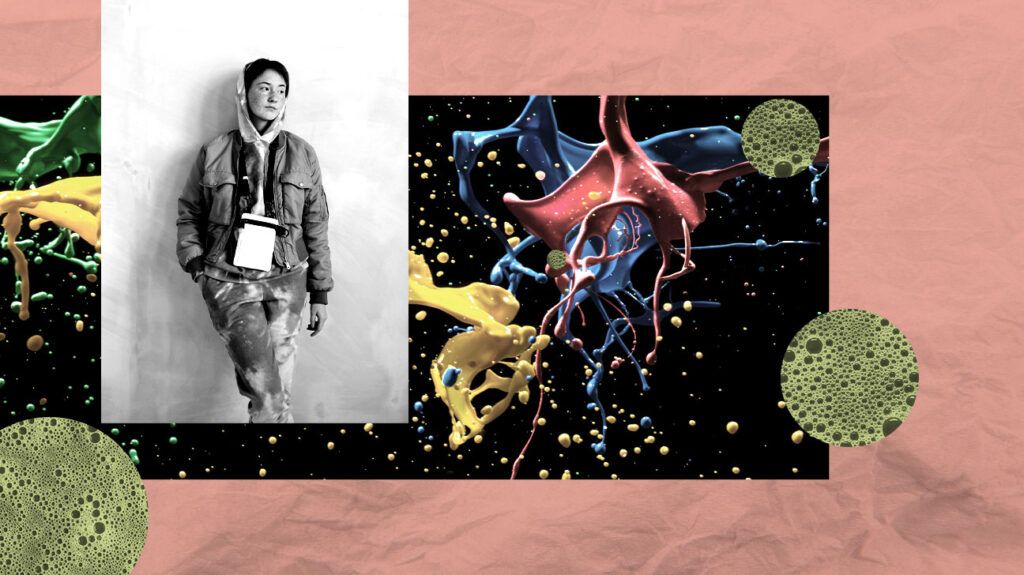Hormones are the body’s chemical messengers. They act on various tissues and organs in the body to change their behavior. For example, the hormone prolactin stimulates the production of breastmilk.
Hormones often have more than one function. The behavior of hormones often depends on environmental inputs. For example, a baby suckling at the nipple
Discussion of hormones often focuses on sex hormones such as estrogen and testosterone. However, hormones are critical to many bodily functions and affect many aspects of daily life, such as sleeping, waking, digestion, the absorption of nutrients, mood, and more.
So what are hormones? Read on to learn more.
A note about sex and gender
Sex and gender exist on spectrums. This article will use the terms “male,” “female,” or both to refer to sex assigned at birth. Click here to learn more.

Hormones are chemical messengers that send a signal to one or more tissues or organs in the body. They are part of the endocrine system, and the study of this system is known as endocrinology.
Hormones have two basic functions.
They may also send a signal from an endocrine gland to an organ or tissue, such as when the pancreas releases insulin to absorb glucose from the bloodstream.
Scientists have identified more than 50 hormones in the human body. More hormones may exist.
The endocrine glands produce hormones. Some examples of endocrine glands include:
- the thyroid, which releases thyroid hormones
- the pituitary gland, which releases a number of hormones, such as thyroid-stimulating hormone
- the testes, which release testosterone
- the ovaries, which release estrogen
- the pancreas, which releases insulin
Scientists have also produced many artificial hormones they use for medical purposes. For example, synthetic oxytocin can induce labor.
The body produces several main types of hormones:
Steroid hormones
The body makes steroid hormones from cholesterol. They are
Many sex hormones, such as estrogen and testosterone, are steroid hormones.
Peptide hormones
Peptide hormones consist of three or more amino acids. They are soluble in blood. Examples include:
- antidiuretic hormone, which plays a role in metabolism
- oxytocin, or the “cuddle” hormone, which serves an important role in childbirth and nursing
- insulin and insulin-like growth factor, which help regulate blood sugar levels
Amine hormones
Amine hormones derive from amino acids. Some are soluble in blood. Examples include:
- thyroid hormones
- epinephrine and norepinephrine
- dopamine
Female sex hormones are more abundant in females than males, although everyone has them to some extent. They influence sexual development, including the development of reproductive organs, puberty, fertility, and libido.
The main female sex hormones
- estrogen, which helps foster sexual desire and thicken the lining of the uterus before ovulation
- luteinizing hormone and follicle-stimulating hormone, which help foster the release of an egg from the ovary
- progesterone, which thickens cervical mucus after ovulation and helps support an early pregnancy
In females, the ovaries are the main endocrine gland that produce these hormones, but other tissue can produce them, too.
Levels of these hormones can also shift significantly throughout life, as well as with a person’s health status and environment.
For example, the menstrual cycle causes regular fluctuations in sex hormones, with larger shifts occurring at different life stages, such as menopause.
The
The body metabolizes testosterone into dihydrotestosterone and estradiol. Estradiol is a type of estrogen.
As with female sex hormones, male sex hormones are not exclusive to males. Similarly, males also have “female” hormones, such as estrogen.
Many hormones continue functioning in a similar way throughout a person’s life. An exception to this is the male and female sex hormones, which naturally decline with age.
In females, estrogen and progesterone decline most significantly at menopause, which usually begins between the ages of
Age is not the only reason hormones can decline. Some other factors include:
- Surgeries: Surgeries that remove endocrine glands have an immediate impact on hormone production. For example, if a person undergoes surgery to remove the ovaries or testes, they will no longer be able to produce sex hormones.
- Medical treatments: Some medications and medical treatments affect hormone production. This could be a side effect, or intentional. For example, treatment for an overactive thyroid can involve treatments that damage the thyroid gland to stop it producing so much thyroid hormone.
- Autoimmune diseases: Some autoimmune diseases involve the body attacking its own healthy tissue. When this affects an endocrine gland, it can lead to a reduction in hormones. For example, Hashimoto’s disease affects thyroid hormone production.
- Other chronic conditions: Type 2 diabetes, obesity, and other chronic conditions can also lead to changing hormone levels.
A person may have a hormone imbalance if:
- they have trouble getting or staying pregnant
- their menstrual cycles are often irregular
- they experience an unexplained change in energy levels, sleep, or libido
- they are prone to significant mood shifts
- they have persistent skin conditions, such as dryness or acne
- they are often too hot or cold
- they feel very sick or have symptoms that seem to affect many different areas of health
- they lose or gain significant weight for no clear reason
People cannot reliably diagnose hormone imbalances on the basis of symptoms alone. This is because the symptoms of a hormone imbalance can be very similar to those of other conditions.
A person who has concerns about their health should speak with a doctor for a diagnosis.
Hormones play an important role in many aspects of a person’s health and life. Sex hormones initiate puberty and play a role in pregnancy and fertility, as well as sexual desire.
However, the role of hormones extends well beyond sex hormones. They regulate many bodily functions, including appetite, metabolism, body temperature, mood, digestion, and more.
People who have concerns about their hormones should talk with a doctor about symptoms and testing.
